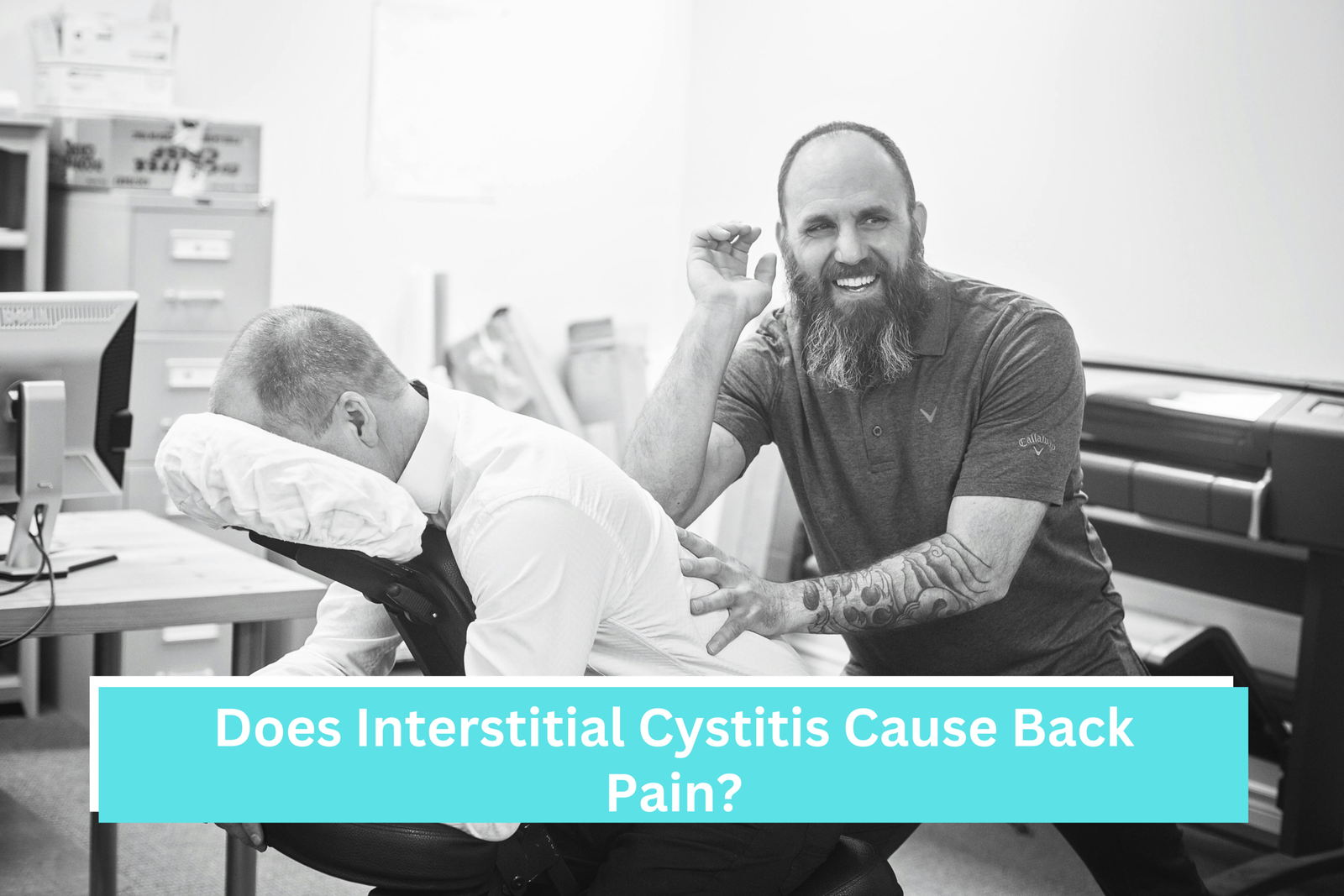Back pain is one of the most common discomforts pregnant women experience, affecting almost two-thirds of expecting mothers at some point. But one question many women ask early on is: “When does back pain start in pregnancy?”
The answer isn’t the same for everyone — some women may feel mild discomfort early on, while others might not experience it until much later. Understanding when and why back pain starts can help you manage it more effectively and enjoy a healthier pregnancy journey.
Table of Contents
ToggleWhen Back Pain Can Start During Pregnancy
Back pain can start at any time during pregnancy, though it is most common in the second half, typically between the fifth and seventh months. Some women may experience it as early as the first trimester, sometimes as early as 4 to 8 weeks, especially if they have a history of back problems.
First Trimester (Weeks 4–12)
Some women start feeling back pain this early, often due to hormonal changes. The body releases a hormone called relaxin, which loosens the ligaments and joints in the pelvic area to prepare for childbirth. This natural process can, however, make your back and hips less stable and more prone to discomfort.
During this stage, fatigue, stress, and changes in posture due to nausea or bloating can also contribute to lower back strain. Women who had back pain before pregnancy or lead a sedentary lifestyle may notice discomfort sooner than others.
Second Trimester (Weeks 13–27)
The second trimester is when most women start noticing back pain becoming more consistent. As your uterus expands, your belly begins to grow, shifting your body’s center of gravity forward. This change in balance causes your lower back muscles to work harder to support your posture.
Around the fifth month, usually between 18 to 24 weeks, the combination of hormonal loosening, weight gain, and posture adjustments makes back pain more noticeable. The pain may appear as a dull ache in the lower back, sharp pain when standing for too long, or stiffness after sleeping.
Third Trimester (Weeks 28–40)
By the third trimester, back pain can become more intense due to the additional strain on the spine and pelvis. The baby’s weight continues to increase, and your growing belly can cause you to lean backward, putting extra pressure on your lower back muscles.
Additionally, as the due date approaches, your body continues producing relaxin to prepare for delivery. The pelvic joints may feel looser, and walking or standing for extended periods may become more uncomfortable. This stage is when most women experience the most persistent back pain.
Common Causes of Back Pain in Pregnancy
While the timing of back pain can vary, its underlying causes are usually a mix of physical and hormonal changes. Understanding these can help expectant mothers take preventive measures and find relief sooner.
- Hormonal Changes
Pregnancy hormones, especially relaxin, play a key role in preparing the body for childbirth. This hormone softens the ligaments and loosens joints in the pelvic area, making it easier for the baby to pass through the birth canal. However, the downside is that these loosened ligaments can reduce spinal support and increase strain on the lower back.
- Weight Gain
A healthy pregnancy usually adds between 25 to 35 pounds (11 to 16 kilograms) of weight. This additional weight puts more stress on the spine and back muscles. The extra pressure can cause discomfort, especially in the lower back, and may worsen if posture or physical activity isn’t adjusted accordingly.
- Shifting Posture
As the uterus grows, your posture naturally shifts to accommodate the extra weight. You might arch your back more or lean backward to balance your belly. This constant change in alignment strains the spine, particularly in the lumbar region, leading to pain or stiffness.
- Muscle Separation
The increasing pressure on your abdomen can cause the rectus abdominis muscles (the “six-pack” muscles) to stretch and separate, a condition called diastasis recti. This separation weakens the core’s ability to support your back, often resulting in lower back pain or pelvic discomfort.
- Stress and Fatigue
Emotional stress can lead to muscle tension, especially in the back, neck, and shoulders. Combined with physical exhaustion, it can intensify the pain. Practicing relaxation techniques and ensuring enough rest can significantly ease these symptoms.
Types of Back Pain During Pregnancy
Understanding the kind of back pain you’re experiencing helps identify the best ways to manage it.
Lower Back Pain: The most common type, usually felt around the lumbar spine. It may worsen when standing or sitting for long periods.
Pelvic Pain: Pain deep in the buttocks or sides of the hips, often due to pressure on the pelvic joints.
Sciatica: Caused by pressure on the sciatic nerve, leading to sharp pain that radiates from the lower back to the legs.
Some women may experience all three types at different points during pregnancy.
How to Relieve and Prevent Back Pain in Pregnancy
- Practice Good Posture
Stand tall, with your shoulders relaxed and your chest lifted. Avoid locking your knees and try to keep your feet hip-width apart for better balance. When sitting, use a chair with good lower back support, and consider placing a small pillow behind your back.
- Exercise Regularly
Although back pain is common, it doesn’t have to control your pregnancy experience. With the right habits and care, you can reduce discomfort and improve mobility.
Gentle exercises such as prenatal yoga, swimming, or walking strengthen the back and abdominal muscles. Always check with your healthcare provider before starting any exercise routine. Simple pelvic tilts and stretches can also help relieve lower back tension.
- Wear Supportive Footwear
Avoid high heels or flat shoes without arch support. Instead, wear comfortable, low-heeled shoes with proper cushioning to help maintain your body’s alignment.
- Use Proper Lifting Techniques
When picking up objects, bend your knees and squat instead of bending at the waist. Keep the object close to your body and lift with your legs rather than your back.
- Sleep on Your Side
Sleeping on your side, especially the left, with a pillow between your knees can reduce back strain and improve circulation. You can also use a pregnancy support pillow to maintain a comfortable sleeping position.
- Apply Heat or Cold Therapy
A warm compress or a heating pad on the lower back can help relax tight muscles. Alternatively, a cold pack may reduce inflammation and numb sharp pain. Be sure not to use extreme temperatures.
- Consider Prenatal Massage or Physical Therapy
A prenatal massage by a trained therapist can help relieve muscle tension and improve circulation. Physical therapy may also be recommended for severe or persistent pain to strengthen core muscles and support the spine.
When to Call Your Doctor
While mild to moderate back pain is normal during pregnancy, you should contact your doctor if you experience:
Severe, sudden, or sharp back pain
Pain accompanied by fever or burning sensation during urination
Back pain along with vaginal bleeding or cramping
Numbness, tingling, or weakness in the legs
These could be signs of a more serious condition like preterm labor, kidney infection, or nerve compression.
Final Thoughts
Back pain during pregnancy is a common but manageable part of the journey. It can begin as early as the first trimester or become more noticeable around the fifth month when your posture and weight change significantly. While hormonal shifts, muscle strain, and posture play major roles, maintaining proper body mechanics, regular movement, and supportive habits can make a world of difference.
Every pregnancy is unique, so listen to your body and seek professional advice when necessary. With awareness and care, you can reduce discomfort and focus on what truly matters — preparing for your baby’s arrival with comfort and confidence.



